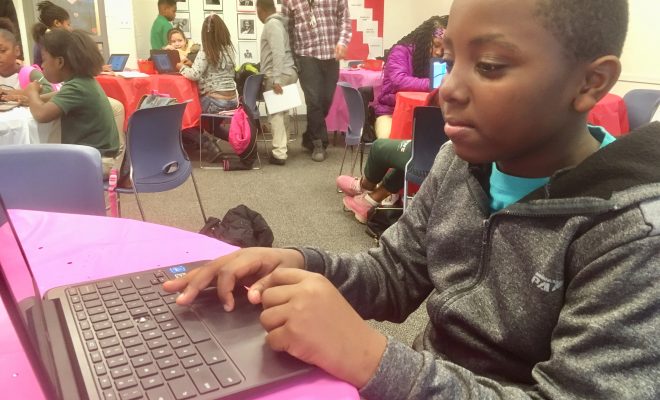Four Tough S’s in Education: Search, Seizure, Suspension, and Student Rights

Sometimes, students pose a danger to themselves or to others. It’s a situation that most educators hope to never face, yet so many will. It’s important that you understand your district’s policy for dealing with those situations, what your role would be, and what rights the student or students in question would have. This article talks about the legal concerns of two common safety situations:
1. Search and Seizure
Protection against being subjected to unreasonable searches and seizures is provided to all American citizens by the Fourth Amendment to the Constitution. Students, as citizens, enjoy that right. School officials are less limited than police with respect to searches and do not have to procure a warrant or a probable cause to initiate search. They can conduct a search based on the presence of reasonable suspicion. With the increasing need to address issues such as the elimination of drugs and weapons, laws with respect to search and seizure have become more diversified. Newer means of detection of banned items have emerged, which has made search and seizure more complicated. On the whole, a search by school officials can be justified as long the following guidelines are adhered to:
- The school employee must have reasonable grounds to conduct the search, and the circumstances have to justify the action at its inception.
- The authorities conducting the search must be careful about the reasonableness of their actions in terms of the situation and the age and gender of the students.
- For any search to take place, a reasonable basis of suspicion against the student must exist. Mere doubts do not give the license to the school authorities to conduct searches.
- The routine search of lockers and desks is acceptable and can be a part of the normal procedure. Parents should be informed about the policy beforehand.
- The more invasive a search, the stronger the probable cause should be.
Authorities must also take certain precautions when conducting a search. For example, a male official cannot conduct a physical inspection of a female student, as that could amount to sexual harassment. If backed by a reasonable cause, searching students’ purses, book bags, lockers, packages, and automobiles parked on school property is completely acceptable. But in the absence of strong suspicion, any search is utterly unacceptable. Personal searches are required to be carried out in private and by an official of the same gender as the person being searched. Also, the provision of alternate clothing for the accused while the search is being carried out is a must. As mentioned earlier, drug testing for student athletes participating in sports activities is a common practice by schools and is legitimized by law. The use of “sniffer dogs” when a reasonable suspicion exists that a student is carrying drugs is allowed.
2. Due Process in Suspension and Expulsion
The right to education for every student is the major consideration of the U.S. Supreme Court when dealing with issues concerning due process and suspensions and expulsions. This was clearly illustrated by the Supreme Court’s decision in Goss v. Lopez, in which the court ruled that the due process requirement regarding cases dealing with suspensions of 10 days or less must include a proper and timely written or oral communication to the student outlining the charges against him or her. Furthermore, the school must provide the student with the opportunity to present his or her side of the story during any proceedings related to the suspension. The inherent guiding principle is that all students have the right to an education, which is secured for them under state laws.
While the Goss decision dealt primarily with dismissal from school for disciplinary reasons, the scope should be broadened in the future to outline the due process requirements in cases involving the suspension of students for academic reasons.
In order for schools to remain within the confines of the law as it pertains to due process, they should adhere to the following guidelines:
- There must be an attempt to reach to a consensus over the real basis of fact.
- The provision for future review of any decision must be present.
- The justness of all procedures appropriated in reaching any decisions regarding the case must be established in entirety.
In real-life situations, however, the essentials listed above translate into the following:
- Provision of a timely notice to the student revealing all charges against him.
- Providing ample opportunity for the concerned student to be able to speak in clarification of the charges against him or her during the hearing.
Take, for example, a situation when a student becomes so rowdy and disruptive that his or her removal from the school becomes necessary. While the school ideally has a policy outlining options in such circumstances—which may range from short-term or long-term suspension to permanent expulsion of the student—it is the institution’s moral obligation to choose the action that most aptly applies to that particular student. For minor disciplinary actions, schools can use their discretion depending on the gravity of the act. Short-term suspensions should be preceded with some sort of a notice to the student and a chance to tell his or her side of the story. This notice must bear tangible proof of being served, in case the student denies the charge. This places the school in a strong position to explain the evidence in the best possible manner.
Long-term suspension or expulsion must be backed with concrete reasons and proof of the student’s offending behavior. It is the school’s responsibility to ensure that the punitive actions imposed do not violate the student’s rights. To guarantee that students’ rights have been protected, educators at a minimum should:
- Provide the student with a written notice of the alleged charges against them.
- Provide a full and detailed notification of the time and place of the hearing well in advance.
- Share with the student a clear-cut description of the procedures to be followed at the hearing.
- Furnish a list of evidence to be presented as well as the names of witnesses who will be called for the hearing.
- Make sure the student has an opportunity to cross-examine witnesses, and can bring his or her own witnesses.
- Keep the option of appealing the final decision open for the student against whom the charges are being put.
Again, laws are not fixed, and amendments are made when needed to adapt to changing social norms, viewpoints, and thought processes. A good example is the way schools have changed in dealing with teen pregnancy, as discussed earlier. While teen pregnancy is still discouraged, school authorities can’ restrict these students’ rights to an education. The underlying assumption is that students, being citizens first, are provided with their substantive and procedural due process rights.
Search, seizure, and suspension are all serious issues that can be emotionally and mentally difficult to face. Still, you owe it to your students and yourself to be thoroughly educated on the process for each. Should the worst happen, you’ll want to have the procedural knowledge right at your fingertips, for everyone’s sake.





